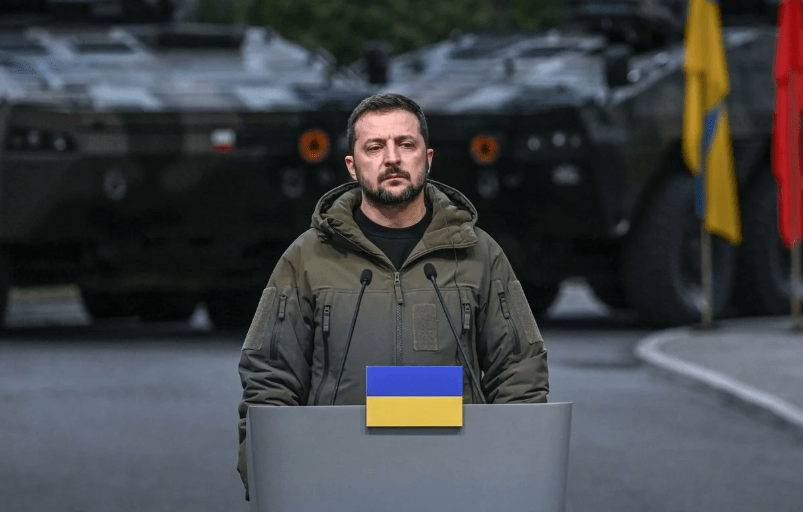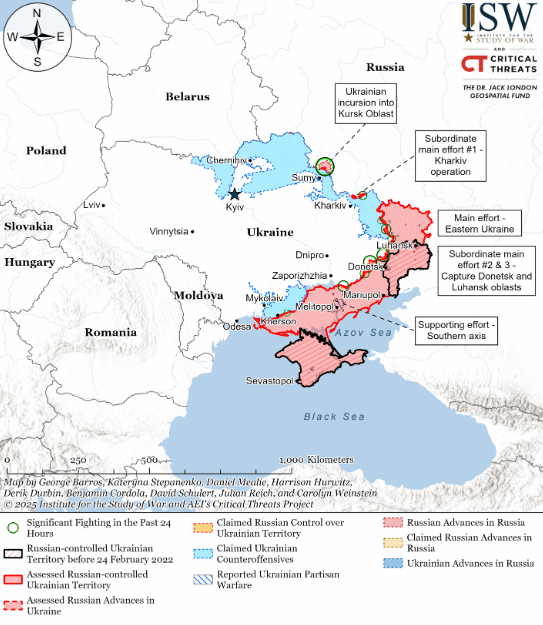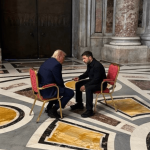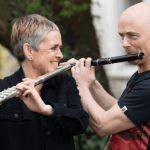Moscow, Rome — Hopes for an end to the Russia-Ukraine war have been reignited after US President Donald Trump said both sides are “very close to a deal.” His comments came just hours after his envoy, Steve Witkoff, held high-level talks with Russian President Vladimir Putin in Moscow.
Trump described Friday’s negotiations as a “good day,” while the Kremlin labelled them “constructive.” Notably, Ukraine was absent from the discussions.
Posting on social media, Trump stated: “Most of the major points are agreed to,” urging both Russia and Ukraine to meet “at very high levels” to “finish it [the deal] off.”
Meanwhile, Ukrainian President Volodymyr Zelensky struck a cautious tone. Speaking in his late-night video address, he said: “Real pressure on Russia is needed” to push for an unconditional ceasefire.
Earlier in the day, Zelensky told the BBC he was open to discussing territorial matters with Moscow, but only if a “full and unconditional ceasefire” was in place.
There are emerging reports suggesting Ukraine may be expected to cede significant territories seized by Russia, under a peace plan reportedly backed by the United States.
Arriving in Rome for Pope Francis’ funeral on Saturday, Trump reiterated his support for Russia retaining Crimea, annexed illegally in 2014. Zelensky, however, strongly rejected the idea, insisting the fate of Ukrainian land should rest solely with its people.
“Only the Ukrainian people have the right to decide which territories are Ukrainian,” Zelensky stated in Kyiv.

Despite this, Zelensky later hinted that a ceasefire could open avenues for broader discussions, telling the BBC: “A full and unconditional ceasefire opens up the possibility to discuss everything.”
He also acknowledged Trump’s remarks in Time magazine, where the president said “Crimea will stay with Russia.”
Zelensky responded: “What President Trump says is true, and I agree with him in that today we do not have enough weapons to return control over the Crimean peninsula.”
Friday’s Moscow talks saw Witkoff’s convoy sweep through the capital under heavy security. It marked Witkoff’s fourth visit this year.
The three-hour meeting was described as “very useful” by Putin aide Yuri Ushakov. He said the discussions “brought the Russian and US positions closer together, not just on Ukraine but also on a range of other international issues.”
“Specifically on the Ukrainian crisis, the possibility of resuming direct talks between Russian and Ukrainian representatives was in particular discussed,” Ushakov added.
Putin, for the first time since early in the conflict, appeared open to the idea of direct discussions with Zelensky — seen as a response to Ukraine’s Easter truce proposal, which suggested a 30-hour ceasefire be extended for 30 days. No agreement on a truce has yet been reached.
Despite some movement, significant gaps persist. Reuters revealed that a US peace plan proposes that Russia retains the territories it currently holds, including Crimea and all of Luhansk region. In contrast, Ukraine and European allies insist that occupied territories can only be discussed after a ceasefire.
The US plan also reportedly blocks Ukraine from joining NATO — a longstanding demand from Moscow.

As the Witkoff-Putin meeting unfolded, Trump remained optimistic. Speaking in the US, he said: “They’re meeting with Putin right now, as we speak, and we have a lot of things going on… I think in the end we’re going to end up with a lot of good deals.”
Trump claimed that as many as 5,000 Ukrainians and Russians are dying weekly and insisted, “we’re pretty close” to securing peace.
He also took the opportunity to criticise delays in Ukraine signing a major “Rare Earths Deal” with the United States, saying it was “at least three weeks late.”
On the battlefield, tensions remain high. Moscow accused Kyiv of orchestrating a car bomb attack that killed a senior Russian general, although Ukraine has not commented.
Following a deadly missile strike on Kyiv, which killed 12 and injured dozens, Zelensky alleged that the missile contained at least 116 parts imported from abroad, most of them made in the United States.
He warned: “Insufficient pressure on North Korea and its allies allows them to make such ballistic missiles.”
Zelensky further criticised Russia for rejecting a US-proposed 30-day ceasefire, insisting: “Without pressure, this cannot be resolved.”
In a rare direct appeal, Trump posted on social media urging Putin: “Vladimir STOP!”
Yet, despite this, Trump later shifted some blame onto Kyiv, telling Time magazine: “I think what caused the war to start was when they [Ukraine] started talking about joining NATO.”
While negotiations hint at a potential breakthrough, deep-seated issues, particularly surrounding Crimea and NATO, mean a final peace deal is still uncertain. As both sides edge closer, the world watches with cautious hope. But Ukraine’s absence from key talks remains a major hurdle to lasting peace.






